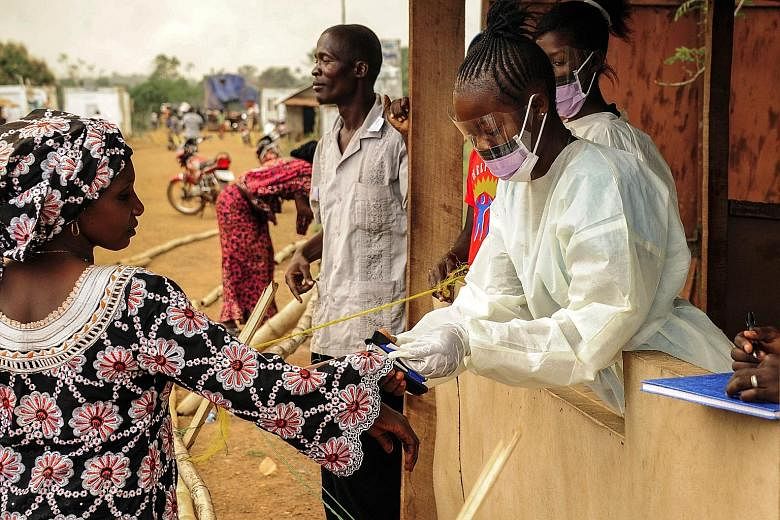LONDON/GENEVA • The world is on the verge of being able to protect humans against Ebola, the World Health Organization (WHO) said yesterday, as a trial in Guinea found a vaccine to have been 100 per cent effective.
Initial results from the trial, which tested Merck and NewLink Genetics' VSV-ZEBOV vaccine on about 4,000 people who had been in close contact with a confirmed Ebola case, showed complete protection after 10 days.
The results were described as "remarkable" and "game changing" by global health specialists.
"We believe that the world is on the verge of an efficacious Ebola vaccine," WHO vaccine expert Marie Paule Kieny told reporters in a briefing from Geneva.
The vaccine could now be used to help end the worst recorded outbreak of Ebola, which has killed more than 11,200 people in West Africa since December 2013.
WHO director-general Margaret Chan said the results, published online in the medical journal The Lancet, would "change the management of the current Ebola outbreak and future outbreaks".
The Gavi Alliance, which buys vaccines in bulk for poor countries struggling to afford them, immediately said it would back an Ebola shot once it is approved.
"These communities need an effective vaccine sooner rather than later," Gavi's chief executive Seth Berkley said.
This and other vaccine trials were fast-tracked with a huge international effort as researchers raced to test potential therapies and vaccines while the virus was still circulating.
"It was a race against time and the trial had to be implemented under the most challenging circumstances," said Mr John-Arne Rottingen of Norway's Institute of Public Health, chair of the trial's steering group.
The Guinea trial began on March 23 to evaluate the effectiveness and safety of a single dose of VSV-ZEBOV using a so-called "ring vaccination" strategy, where close contacts of a person diagnosed with Ebola are immunised - either immediately, or at a later stage.
As data began to emerge showing the very high protection rates in those vaccinated immediately, however, researchers decided last Sunday that they would no longer use the "delayed" strategy, since it was becoming clear that making people wait involved unethical and unnecessary risk.
The trial is now being continued, with all participants receiving the vaccine immediately, and will be extended to include 13- to 17-year-olds and possibly also six- to 12-year-old children, the WHO said.
VSV-ZEBOV was originally developed by Canada's public health agency before being licensed to NewLink Genetics, which then signed a deal handing Merck the responsibility to research, develop, manufacture and distribute it.
Another major trial in Liberia, which had aimed to recruit about 28,000 subjects, had to stop enrolling after only reaching its mid-stage target of 1,500 participants. Plans for testing in Sierra Leone were also scaled back. That left the study in Guinea, where Ebola is still infecting new victims, as the only real hope for demonstrating the efficacy of a vaccine.
REUTERS

